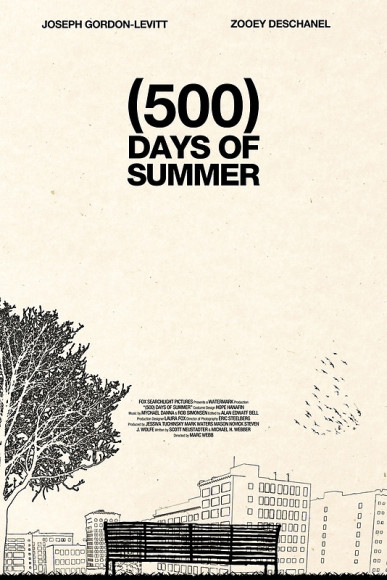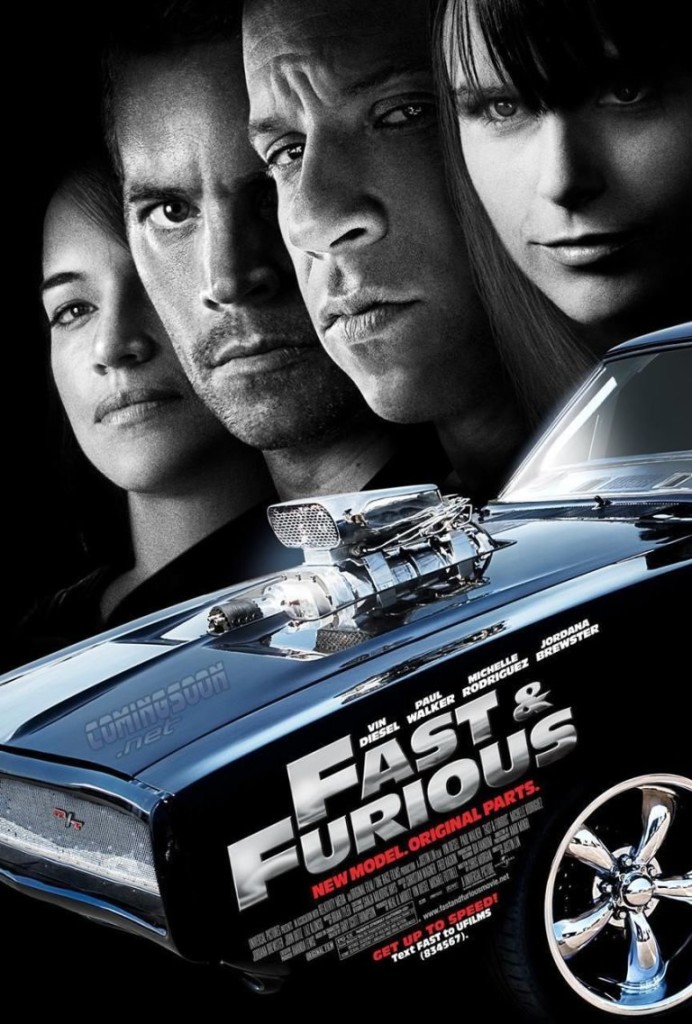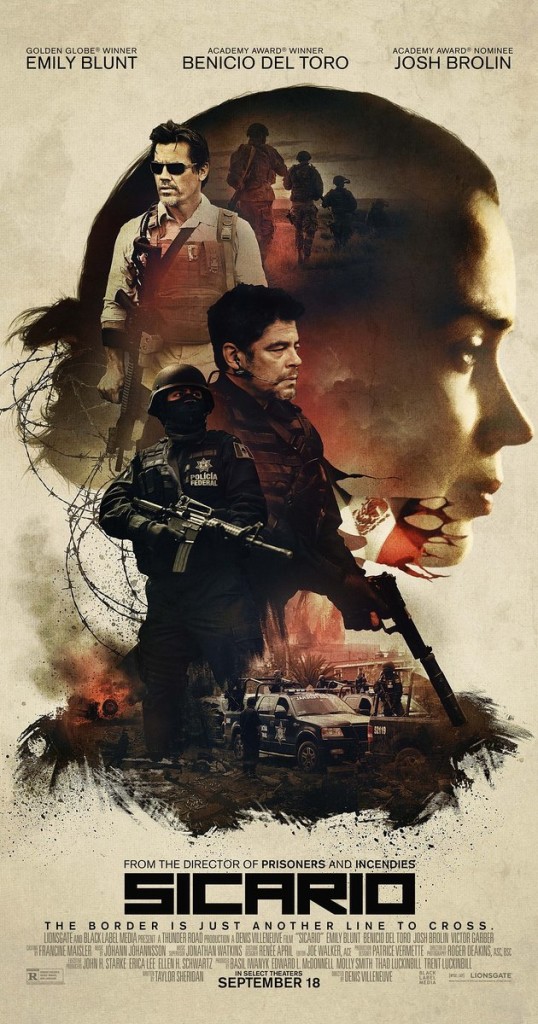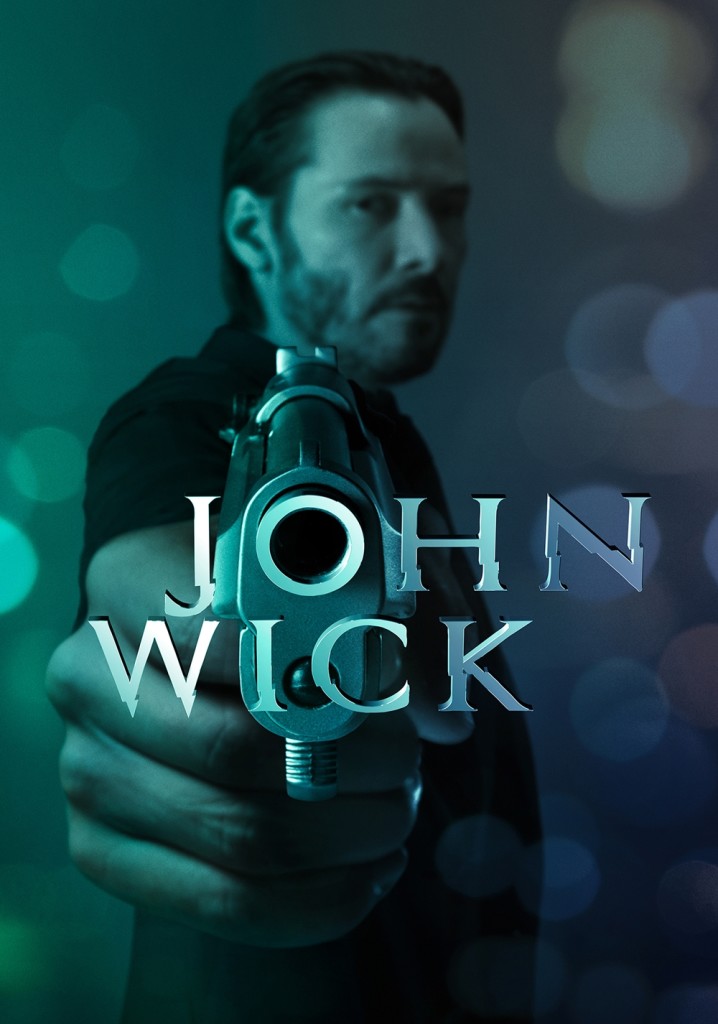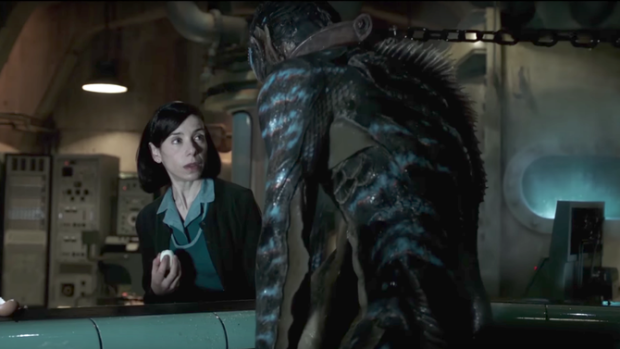I don’t know about you guys, but I’m going to see “It!” this weekend. And since the film is already breaking records at the box office (and it’s only Friday!), screenwriters are going to want to get a jump start on the trend it’s going to spawn – Event Horror. The Tommyknockers will be coming soon (god I love that book). And then any scripts that can build a bigger world into the horror genre. I repeat, jump on the trend now! Cause soon it will be flooded.
How to play Amateur Offerings: Read as much of each script as you can and submit your winning vote in the comments section. Winner gets a script review next Friday!
If you’d like to submit your own script to compete on Amateur Offerings, send a PDF of your script to carsonreeves3@gmail.com with the title, genre, logline, and why you think your script should get a shot. Good luck!
Title: Nollywood
Genre: Dramedy
Logline: An up and coming director receives an opportunity to finally make her debut feature film; with one caveat, she only has one week to shoot. So, she makes the obvious decision – film the movie in Nollywood, Nigeria.
Why you should read: Yes, I understand people’s thoughts on movies about making movies, but this script being set in the bizarre and culturally different setting of Nollywood provides natural conflict as Merritt, the main character, has to learn to adapt and absorb a foreign culture. The speed and ways movies are made in the Nollywood system is inherently a fun experience, and the process accompanies by the people involved makes observing this mass difference between Hollywood and places where they seem to actually care and treasure movies that much more interesting.
Title: PARIS COUNTDOWN
Genre: Action
Logline: An Interpol narcotics agent is forced to team up with his hostile future father-inlaw, a CIA agent, to take down a criminal ring that has targeted Paris’ most valuable treasures.
Why you should read: It placed high: American Screenwriting competition Top 100, PAGE SEMI-FINALIST. It got a STRONG CONSIDER from a screenwriting service. It’s not the generic buddy movie. It has that “Meet the parents” vibe as a plus.
Title: In the Land of Tooth & Claw
Genre: Action/Adventure
Logline: A troubled professor recovering from familial tragedy is hired to help locate her ex-husband and mankind’s greatest discovery in the most dangerous environment recorded throughout history. The late Cretaceous – the land of tooth & claw.
Why should you read? I’d really like to provide some deep, nuanced answer here, but I can’t. Aside from those small, contained Jurassic Park movies, dinosaurs aren’t really a massive fixture on the big-screen (at least recently), which is weird given how innately cinematic they are. Thought i’d take a pop at addressing that. Honestly, I’ve worked hard on it and I think at the very least In the Land of Tooth & Claw is a fun read. Pretty brisk too. I’d obviously love to throw around descriptors like energetic, horrifying, resonant and imaginative, but that’s your job, not mine. Give it a shot, preferably with an alcoholic beverage, and see if you have a good time. That’s why I do this, anyway. To try and offer a little fun. The world’s pretty garbage sometimes, and dinosaurs join a select list (sex, chocolate and Tom Cruise flicks) that traditionally provide fleeting relief.
Title: EMILY VAN HELSING VS. DRACULA
Genre: Action-adventure
Logline: Young vampire hunter Emily Van Helsing must discover her full powers and true destiny in a quest to stop Dracula’s sinister plan to conquer Victorian London.
Why you should read: because it’s a fresh angle on the Van Helsing/Dracula mythology with a badass heroine. If you like your adventures in the gaslight and mist of Victorian London, this one is for you!
Title: Meat
Genre: Mystery/Horror
Logline: A misanthropic man notices bizarre changes in himself, his wife, and the animals inhabiting the territory around their homestead as they attempt to survive self-imposed isolation.
Why you should read: After moving from North Dakota post-college at the end of 2016, I started to write scripts in my spare time and fell in love with it. My first screenplay placed in the top 20% of the 2017 Nicholl fellowship, and as of now I’ve “finished” five features and am working on my sixth. I aim to create original, meaningful stories, but even more so focus on presenting them in a unique way. MEAT has been compared to The Witch by readers due to its low budget, as well as its setting and tone. It’s an unconventional horror story that poses a moral question without appearing pretentious.
Make sure to get those amateur entries in. There WILL be an Amateur Offerings this weekend. Title, Genre, Logline, Why We Should Read, plus a PDF of your script to carsonreeves3@gmail.com
Genre: Period
Premise: During World War 2, a famous Jewish director was coerced by the Nazis to produce a propaganda film showing the concentration camps as a spa for Jews, all while being a prisoner in one. Based on the true story of Kurt Gerron.
About: For the past seven years, I’ve been writing, directing and producing my own short films. Since my love for making movies is bigger than my wallet, I almost went bankrupt because of it. With that said, a year ago I wrote this screenplay after a FULL YEAR of research. The story is full of irony, and I never understood why no one had made a movie about Kurt yet.
Writer: Marcos Vaz
Details: 116 pages
It’s so great to hear that Marcos is out there doing exactly what I told you to consider at the end of yesterday’s article. Stop waiting for people to give you approval. Bypass the bullshit and be your own approval.
With that said, if this is Marcos’s plan for a first feature, I’d probably advise him to write a cheaper movie first. For those unfamiliar with budgets, any sort of period film is going to cost a lot of money, because you’re recreating a world that no longer exists. Old costumes, old props, old locations, old looks. That gets expensive fast.
However, this is obviously a passion project for Marcos and what I’ve found is that if you are going to make your own movie, intense passion will inspire others to join your cause. People will want to be a part of your movie and they’ll help you find ways to overcome financial restraints. That’s how a ton of movies get made.
So let’s see if the writing matches the passion here.
Kurt Gerron is a famous Jewish actor, writer, and most prominently, director. His plays are legendary. And he’ll be the first person to tell you that. This guy’s got one hell of an ego on him.
When Gerron and his wife, Olga, are rounded up by the Germans and sent to a concentration gamp in Czechoslovakia called Theresienstadt, they receive special treatment from the start. The head commander at Theresienstadt, Karl Rahm, is a huge Gerron fan. So, at first, things are going swimmingly.
Then Rahm gets word that the Red Cross will be visiting soon. They want to make sure that the Germans aren’t violating any human rights. He becomes concerned that nobody here looks happy (I wonder why). So he gets this idea: Have Gerron put on a play. People will have fun producing it. People will have fun watching it. It should lift the spirits of the camp so that everyone’s busting a gut by the time the Red Cross arrives.
Meanwhile, Rahm is putting together his own “play” – as in, he’s going to make the prisoners act like this place is a blast. He’s got scripts for the kids and the prisoners and the staff, who all must hit their marks, say the right things, smile and convince these pesky Red Crossers that everything is just wonderful.
Gerron speeds through pre-production but isn’t able to get a show together before the Red Cross arrives. Strangely, that turns out to be no problem, because the Red Cross found everything to be lovely, even going so far as to write a glowing letter that appeared in all of the world’s biggest newspapers.
Because things went so well, Rahm gives Gerron another task. He wants him to film a documentary of Theresienstadt and make it look like a vacation getaway. Gerron is thrilled that he still gets to put on a show and gets back to work.
Unfortunately, with the Russian army closing in and the end of the war nearing, Rahm is forced to ship as many Jews as possible to the killing camps, and Gerron ends up being one of those prisoners. In the end, he dies in the gas chambers of Aushwitz.
Okay Marcos. I’m going to get a little intense here. But it’s only because I see a lot of potential in this. Unfortunately, if we’re going to meet that potential, we’re going to need a page 1 rewrite. And that’s because the plotting is all over the place. The King’s Fool has no structure.
Gerron gets to this concentration camp and his mission is to produce a play that makes the prisoners happy so they won’t incite suspicion when the Red Cross arrives. This is a strange goal for a movie, since you’re basically building an objective that the audience wants the hero to fail at. If our hero succeeds, a camp full of Jews lives on in misery. Not exactly a situation to root for.
In addition to this, we have this odd secondary play going on where Rahm is directing all of the prisoners to follow a script for the Red Cross. I must have asked myself a thousand times, why wouldn’t you combine these two storylines into one and have Gerron be the one who’s directing the pretend happy camp?
Because clearly, Marcos had trouble plotting them both. First of all, the prisoners never got a chance to see the play! Which I thought was the whole point – they would see it, be happy, and that happiness would convince the Red Cross that everything was great. Instead, the Red Cross shows up, and decides everything’s great anyway. So then what was the point of the play plotline?
As if this wasn’t problematic enough, there were still 42 pages left in the script! And the main plotline was over! What do you do now? Marcos decides to introduce a new plot where Gerron is asked to direct a documentary of the camp. That becomes the driving force for the rest of the film.
Because this plotline comes on so late, it doesn’t have time to properly build. And by the time it does gain steam, we have to end it. Which puts a confused exclamation point on this structurally schizophrenic film.
I will say that I loved the moment in Aushwitz where he and his wife perform this dazzling scene for the camp, only for us to find out in the closing title cards that they were killed as soon as they got off the train. The problem was, it was so clumsy getting here that we can’t appreciate the greatness of this scene.
This goes back to advice I routinely give on the site yet still writers refuse to listen. Keep your story simple. The more you complicate things, the worse your script is going to get. Unless you’ve written 20 scripts and understand how complexity works in plotting, keep it simple.
Throughout The King’s Fool, it seemed like Marcos was in way over his head. If he just would’ve simplified the plot, he’d have been fine.
That plot needs to be one of two things. Either Gerron is the director for the “pretend happy camp” Rahm needs ready for the Red Cross. Or Gerron directs the documentary of the camp so that it looks like a vacation spa. One of those two is your movie right there. And it’s probably the second one.
Not only would this be good for the film’s structure, but it would allow us to add some heroism into the story.
In the current draft, we learn that the Russians are getting closer. You’ve also built up this death sentence storyline where anyone who gets on the transports is going to the death camps. You could easily work those two elements into a heroic moment for Gerron.
While shooting a scene, I could see him learn that 2000 prisoners are about to be sent away on the transports. Gerron storms out and insists that they bring the prisoners back. “I need them for extras. We have to make this look real.” And there’s this big hubbub where Rahm won’t budge and neither will Gerron, and finally Rahm relents, giving him his extras, and Gerron just saved 2000 people.
I don’t know if stuff like this happened of course. But you need to look for moments LIKE this. Where the main character actually does something heroic.
More importantly, though, the plot needs to be simplified. I do believe there’s a movie here. This is an interesting setup. But holy heck do we need a proper plot.
Script Link: The King’s Fool
[ ] What the hell did I just read?
[x] wasn’t for me
[ ] worth the read
[ ] impressive
[ ] genius
What I learned: You don’t want to have to restart your story on page 75. If you have to give your main character an entirely new goal at that point in the story, there’s probably something wrong with your structure.
What I learned 2: When you include singing in your script, make sure to italicize all of it to visually differentiate it from regular dialogue.
A long time ago, in a galaxy far far away, I was writing a screenplay. I’d come upon a particularly important scene where two brothers were reuniting for the first time in a decade. But I was having trouble starting the scene. Not long before this, I’d gotten feedback from a producer on a different script and one of his notes was that I needed to add more depth to my characters. Conversely, I’d also received coverage from a reader on a third script and he was telling me my dialogue scenes were too long.
The two pieces of advice seemed at odds with one another. How could I explore my characters on a deeper level if I had to move through their dialogue quicker? It was at this moment that I had a revelation – Different audiences want different things. Sure, everybody wants a good script. But what the reader’s looking for isn’t always what the producer’s looking for. And what the producer’s looking for isn’t always what the audience is looking for. Confusing, right? So today I want to talk about the six main audiences you’ll encounter in screenwriting and how to develop a strategy to satisfy all of them.
It should be obvious that I’m generalizing. Not ALL readers like the same stuff. Not all producers like the same stuff. This is based on what I’ve found to be true on a GENERAL LEVEL. So let’s get into it.
THE READER – Because the reader is the first line of defense, they read the most crap, and this gives them a negative predisposition to everything they read. They know they’ve been saddled with another 110 page piece of crap because the last 20 scripts they’ve read have been 110 pieces of crap. This makes the average reader extremely impatient, which is why the scripts that do well with readers are simple and easy to follow. Limited locations, limited characters, clear concept.
Kinds of scripts they like: The Shallows, The Hitman’s Bodyguard, Get Out, The Equalizer
Kinds of scripts they dislike: Lord of the Rings clones, any period piece that could potentially star Keira Knightly, anything with tons of characters
THE PRODUCER – Producers are often looking for scripts with more substance. They know that they’re going to have to get good actors to move the needle. To get good actors you’re going to need juicy characters. They also need to attract a good director to get any kind of funding, and good directors favor weightier themes, complex concepts, unexpected plots, and fresh ideas. Generally speaking, producers don’t go for simplistic guy-with-a-gun setups. They understand that every project is a 3-10 year journey from page to screen. If they’re going to invest that much time in something, it’s going to need some substance.
Kinds of scripts they like: The Imitation Game, Logan, Hidden Figures, Dallas Buyers Club
Kinds of scripts they dislike: London Has Fallen, Dirty Grandpa, Fifty Shades of Grey, Happy Gilmore
THE AGENT – A lot of people are confused by what agents are looking for. I’ll make it easy for you. Agents are looking for writers who can make them money for the next 25 years. That’s it guys. Agents make a tiny percentage of a writer’s earnings so all they care about is, “Is this guy talented enough to consistently get hired?” To that end, they are looking for talented people. This is most readily identified by a UNIQUE VOICE. If you have your own voice as a writer, you’re going to stand out from the pack, which is going to get you hired more than the average writer.
Kinds of scripts they like: Pulp Fiction, The Social Network, True Detective, 500 Days of Summer
Kinds of scripts they dislike: John Wick before it was John Wick, Lucy, Ouija
THE STUDIO – The studio is about one thing and one thing only: Maximizing profit. They want anything that makes money. I mean this is the business that gave us The Emoji Movie and Boss Baby, so you know it has no soul. To that end, understanding the kinds of movies they like is fairly easy. They want something that will require the least amount of investment that will provide the biggest amount of return. And more recently, that formula has shifted. With audiences mostly showing up for spectacle these days, the investment must now be giant and the return enormous.
Kinds of scripts they like: The Fast and the Furious, Lord of the Rings, Wonder Woman, Inception, The Hunger Games
Kinds of scripts they dislike: La La Land, Joy, Sicario, Dallas Buyers Club
THE INDUSTRY – An often overlooked audience is the industry itself. These are your peers, development execs, agents, studio execs, Scriptshadow, contests, and anyone who reads scripts. This is an interesting sub-sector because these people don’t have to put their money where their mouth is. If they like a script, they just have to say that they like it. And for this reason, this audience celebrates quirkier less commercial fare that would otherwise go overlooked. These are essentially the scripts that end up on the Black List at the end of the year.
Kinds of scripts they like: The Beaver, Sicario, The DUFF, The Revenant, Eternal Sunshine
Kinds of scripts they dislike: San Andreas, Taken, The Hunger Games
THE PAYING AUDIENCE – Ah, we finally get to the sector of people that all of this is meant for. The audience! So why does it seem like they’re the least important?? Because, in a way, they are. Look at how many levels the script has to get through to get to this place. That’s without mentioning the more specialized audience-sectors I didn’t get into (actors, directors, financiers). Another irony is that the paying audience is the least discerning of all these groups! They just want to go to the theater or turn on their Netflix and be entertained for two hours. For this reason, mainstream audiences tend to like stuff that other audiences would characterize as “low-brow” or “simplistic.”
Kinds of scripts they like: Guardians of the Galaxy, John Wick, The Lego Movie, Ride Along, Transformers
Kinds of scripts they dislike: The Beaver, Boyhood, Wild, Inherent Vice
Whoa, you’re telling us we have to write to all of these people, Carson? How in the world are we supposed to do that?? Well, the good news is you don’t. In fact, I’m going to give you the three best strategies to break in as a writer, and who you should be writing for in each. I’m going to assume that you’re an amateur writer with little to no connections in the industry. And I’m going to exclude trends. This advice will work today, and it should work in ten years. I should point out that, yes, the best strategy may feel like a cop-out. But I stand by it 100%. It is, without a doubt, the EASIEST way to break in as a writer. Okay, here we go…
Strategy #3 – The Spec Sale Route
The spec sale route is still a viable way to break in. It’s just that the rules have changed. It used to be that studios would buy these gigantically-budgeted spec scripts, even though barely any of them got made. Nowadays, they’re smarter than that. They only buy scripts they think they can turn into movies. That means low-budget high-concept easy-to-market genre material. The Shallows, Get Out, Cloverfield Lane are pristine examples of the types of scripts you should be writing. This means you will be writing for THE READER. These scripts are easy to read and therefore will be celebrated by the reader, who will kick them up to their bosses who will overlook the lack of depth because they don’t need major actors or seasoned directors to get these projects off the ground. They’re some of the easiest movies to get through the system which is why it’s such a smart idea to write one.
Strategy #2 – The Industry Buzz Route
The Industry Buzz Route means writing a script that’s, in many ways, the opposite of a spec sale script. You want to write something that takes risks, that shows your unique voice as a writer, that shows your ability to explore complex themes and complex characters. If the Spec Sale route is to show you can entertain, the Industry Buzz Route is to show you can write. This means you’ll be writing to THE INDUSTRY and that your ultimate goal is to get on The Black List. The nice thing about this route is that you don’t have to worry as much about your script’s commercial prospects because, if you make The Black List, the machine starts putting the project together for you (agents will start sending the script to directors and actors and people will sign on simply because they trust the other people who are signing on – you’d be amazed by how this happens). If you have the next Truman Show, the next Passengers, the next Juno, the next Being John Malkovich, and yes, the next Beaver, this route is for you.
Strategy #1 – The Make The Movie Yourself Route
There’s a reason this is, and will always be, the fastest way to break in as a writer. What’s the one commonality you see throughout this article? All the people you have to win over with your script, right? It’s one of the shittiest things about this town, is that you can find someone who literally LOVES your script, but when they kick it up to the person above them, that person hates it. And that line of opportunity is now dead. Well what if I told you you didn’t have to win anybody over with your script? Sound like a dream scenario? That’s what directing your own scripts allows you to do. Sure, that means new types of challenges (raising money and learning the skill of filmmaking). But if you really want to break into this business, the option that doesn’t rely on a long ladder of people saying yes is this one. And to those of you saying, “But I don’t know anyone that would help me make a movie.” Uhhhh, you know the people here on this site, the people who comment every day. If they’re in your area, that’s a start. And all you need is a few people to get something started.
Genre: Fantasy/Drama
Premise: A young mute woman who works for the government in the 1960s stumbles across a top secret project, an intelligent amphibious creature, and falls in love with it.
About: You may have heard about The Shape of Water recently. Famed filmmaker Guillermo Del Toro’s newest movie screened at the Telluride Film Festival last week and received one of those famed 20 minute standing ovations films seem to receive a lot of these days (and that have nothing to do with publicists. Nothing at all). But seriously, the word on this one is that it’s great. My issue with del Toro has always been that his superior filmmaking skills have masked the clumsiness of his pen. Which is why I wanted to read this script before seeing the film. If this works on the page, then maybe del Toro will have finally created something that isn’t just fun to look at.
Writers: Guillermo del Toro & Vanessa Taylor (based on an idea by Daniel Kraus and Guillermo del Toro)
Details: 94 pages
One of the great crimes we commit as film consumers is allowing others to tell us what to like.
Guillermo del Toro’s career beginnings coincided with the rise of Ain’t It Cool News. AICN’s creator, Harry Knowles, fell in love with del Toro, praising him religiously on the site, and since back then AICN was the only movie site in town, every movie geek followed suit and fell in love with del Toro as well.
Even I fell into the trap. Watching his movies with a distinct feeling of boredom, I figured I must be doing something wrong – watching it the wrong way or focusing on the wrong thing. And when his movies were over, I’d often ponder, “Even though I didn’t like this, everybody else did so I must be wrong.”
Now that I can think for myself, I know why I’ve disliked so much del Toro. His writing is sloppy. His plots are often flighty, it’s not always clear what the focus is, and he has major issues finding a consistent tone. To this day, going to watch the 2001 del Toro flick, The Devil’s Backbone, remains one of the most perplexing moviegoing experiences of my life. All the critics had talked about how great the film was. Yet what I saw was a wandering inconsistent genre-confused mess.
This is where The Shape of Water gets interesting. Del Toro has wisely brought in a second screenwriter, Vanessa Taylor. I like Vanessa Taylor’s writing. I remember back in the early days of Scriptshadow when I read her first script (then titled “Untitled Vanessa Taylor Project”). It chronicled an older couple going through marriage problems. It’s a script that should’ve been boring. Yet Taylor found a truth and authenticity to the relationship that elevated it, then mixed in a hint of humor to turn it into one of the most memorable scripts of the year.
Taylor would go on to win the highly coveted Divergent assignment, and she’s currently scripting the live-action Aladdin movie. It always fascinates me to see writers who not so long ago were scripting these tiny little “nothing” movies now writing some of the biggest films in town. It’s a reminder that success CAN and DOES happen. You just have to write something that resonates with people and you’re on your way.
Anyway, due to these two creative voices, one I detest and one I enjoy, I have no idea what to expect from Shape. But I’m hoping for the best.
The year is 1963. The town is Pittsburgh. We’re talking the epitome of grimy blue-collar America here. Elisa is a rather unconventional representation of that world then. She’s a 35 year-old mute spinster who lives in a small apartment by herself. The highlight of her day is 2 minutes of masturbation in the tub before work.
At least Elisa has a kinda-cool job. She’s a janitor at a secret government underground facility downtown. She cleans rooms where scientists test their latest jet engines or cutting edge (for 1965) robotic arms. Because Elisa never talks to anybody, she’s generally overlooked. Which is probably how she gets into this mess in the first place.
You see, the government brings in their most top secret project yet – an amphibious man-like-thing that lives in water. This is such a big deal that they have to bring a high-ranking military man, Strickland, in, to oversee experiments on the creature. As you’d expect, these experiments are brutal. They figure out, for example, that the creature can only survive outside of water for 30 minutes at a time. So they observe him while he’s left out past 30 minutes… you know, just to see how intensely he suffers.
Because Elisa is in charge of cleaning Amphibian Man’s room, the two start sharing little looks, which leads to her signing him, which leads to him signing back, which leads to them falling in water love. When the intensity of the experiments are ratcheted up, Elisa can’t stand by and do nothing. So she orchestrates an escape plan and takes the creature to her home!
This, naturally, results in a big hubbub at the facility. Strickland starts asking people if they know who’s got him. Several of Elisa’s co-workers who were aware she had an affinity for the creature are on the verge of cracking. So it’s only a matter of time before Elisa is discovered. This leads to a race to free Amphibian Man back into the sea.
Let’s start with the good and hope it lasts longer than a sentence. The Shape of Water is an ORIGINAL IDEA. That needs to be commended. These days, auteur directors are becoming our only outlet for original ideas and that sucks. But I want to start there because I believe in getting more original ideas into theaters even if I don’t personally like those ideas. I mean, isn’t that the point? Hollywood’s stuff is so homogenized and demograph-tested that it’s guaranteed not to be unlikable. With original material, that guarantee isn’t there. Which is why original ideas are so thrilling. You don’t know what to expect.
As for where The Shape of Water falls on the ‘like’ spectrum, it most certainly depends on how big of a del Toro fan you are. If you aren’t a fan, like myself, you see cracks in the story everywhere.
Let’s begin with our mute main character. Yes, that sound you heard was me sighing. Mute main characters. Deaf main characters. Both are crutch-device screenwriting at their worst. The idea behind a deaf character is that they’re the ultimate underdog. It conveys a writer so desperate for you to love their main character that they will go to the absolute extreme to do so.
Of course, it’s for this very reason that it never works. We’re hyper aware that you’re pining for our sympathy, so we go running as fast as we can in the opposite direction. Once the viewer is aware of the writer, there is no suspension of disbelief and the point of the story is moot.
The only time these things work is when – and I just talked about this yesterday – you explore these things AUTHENTICALLY. If you study and research what it’s really like to be a mute, what someone like this goes through on a day-by-day basis. And then you bring that very specific life experience into the character, then yes, it’s going to be great.
But writers rarely do this because it takes time and it’s hard. It’s much easier to slap a physical flaw onto a character in the cheap hope that the audience instantly sympathizes with them despite knowing nothing about them. It’s a screenwriting trick, the very definition of a gimmick. And for any frequent filmgoer, they see through it immediately. (spoiler) And don’t even get me STARTED if, late in the script, the mute character finally talks.
Not only that, but mute characters aren’t conducive for filmic storytelling. Readers don’t enjoy reading entire scripts and not seeing a single line of dialogue from their main characters. It’s hard to reconcile that. Which is why, if you’re going to do it, you should be a writer-director, like del Toro, who doesn’t have to run the script by anyone to get it made.
Even if you can get past that, you still have to deal with del Toro’s biggest weakness – his wildly inconsistent tone. This is something you see in all his movies. At best, it’s annoying, at worst, it’s uncomfortable. For example, in The Shape of Water you’ll have a zany zoinks scene where Elisa will nearly get sucked into the giant jet engine while cleaning, and then, later in the film, an extremely awkward scene where Strickland is borderline raping his wife. It’s like, what kind of movie are you trying to make here??? You shouldn’t even have your main character masturbating in a tub every morning. This is a fantasy film. Not 9 and a half weeks.
I’ll finish by saying this. In the water-based love story sub-genre, The Shape of Water finishes above Lady in the Water but below Splash. So that’s something I guess.
[ ] What the hell did I just read?
[x] wasn’t for me
[ ] worth the read
[ ] impressive
[ ] genius
What I learned: Unless you’re going to truly explore what it’s like to be a mute or deaf, you should avoid making your main character either. In my experience, mute and deaf characters work best in secondary roles, where they don’t have to carry the entire story on their shoulders.
Genre: Action
Premise: When the United States’ most prominent aircraft carrier is infected by a deadly North Korean biological virus, they must figure out how to stave off both the virus and the North Koreans themselves.
About: This script comes from producer Arnold Kopelson, who was, at one point, one of the top five producers in Hollywood. He gave us such movies as Seven, The Fugitive, Platoon, and The Devil’s Advocate. But nothing is forever in Tinseltown, and Kopelson’s last feature credit was the 2004 Ashley Judd thriller, Twisted. Airborne was supposed to be a comeback project for him. However, the aircraft carrier element might’ve doomed the project, since it was competing, at that time, against the 200 million dollar juggernaut that was Battleship. With the North Korean threat reaching a fever pitch in the news recently, maybe this project gets new legs.
Writer: Jonn Moore
Details: 140 pages – 2008 draft
I wouldn’t call what I’m about to discuss an epidemic. But it’s a big enough problem that I run into it frequently.
That problem is dated writing.
Dated writing is when you write with concepts, characters, plots, and ideas that are tonally consistent with a bygone era.
When someone reads your script, it feels like they’re reading a script from 20 or 30 years ago. Now on some level, it makes sense why this happens. If you’re pursuing screenwriting, the movies that originally made you fall in love with this medium are going to be old, and those movies are always going to influence your writing.
However, if you try and write movies like that today, your scripts, by and large, will feel out of touch.
For example, imagine trying to write E.T. today. Or Richard Donner’s idealistic Superman. Or Pretty Woman. Producers would look at you like you were crazy.
See, this is the big lie writers tell themselves. “Hollywood doesn’t want anything new.” That’s actually ALL Hollywood wants, is the next big new thing. The reason why writers get this wrong is because they don’t understand how Hollywood defines “new.” Hollywood defines new as “a fresh take on an established idea.”
Jordan Peele finding a fresh take on the horror film in Get Out. Wonder Woman’s WW1 setting brought a fresh take to the superhero film. Dunkirk’s dialogue-scarce time-jumping storytelling was a fresh take on the war film. Baby Driver’s musically influenced set-piece style was a fresh take on the heist flick.
This is what Hollywood wants from you. They want you to take what they know, and twist it in a way only you can. On the flip side, if you try to write a 2017 version of Die Hard without some twist? Or a 2017 version of Jaws without a twist? If you try and write Face Off or Trading Places or Under Siege or City Slickers or Speed? Those types of movies are dead and gone UNLESS you’ve got a new spin on them (and NO, that doesn’t mean just turn the characters into women!).
And that’s the big problem with Airborne. It feels like a movie from another era.
Will Dixon (I mean come on – even the hero’s name is from a bygone era) is a commander on the USS Ronald Reagan, the stud of the U.S. military’s aircraft carrier fleet. After enjoying a quick break off shore from his duties, he’s told to suit up because something big and bad just happened in North Korea.
After they sail over to the NK, Dixon’s informed that a mysterious weapon has been tested and they need to gather intel on it. So they send a couple of SEAL teams in, who discover a thousand dead bodies who’ve been melted down into one long heap of flesh.
When they get back to the ship to report what’s up, it turns out one of the SEALS contracted whatever virus was used on the heap, and now the virus is spreading through the ship. Not only that, but the kill-rate is 100%. This is a SERIOUS bio-agent.
After the captain of the Reagan dies from the virus, the president reluctantly promotes the inexperienced Dixon to captain, where he will need to solve two problems. First, he must find a way to stop this fast-spreading virus from killing his entire crew. And second, he must decide whether to declare war on North Korea, who is preparing to attack the Reagan. I could go on, but I’m fairly sure you know what happens from here on out.
And isn’t that last sentence the most telling? That I’ve set up the first half of the movie for you, yet you don’t need me to detail a single page of the second half to know exactly what happens?
That’s one of the reasons Airborne feels like a script from a bygone era. It embraces that late 80s, early 90s, mentality of a simplistic plot setup with black and white heroes fighting black and white enemies. It’s action for action’s sake. There is NOTHING new.
And if there’s nothing new, you’re not doing your job as a writer. Because without “new,” there’s nothing to create a sense of wonder in the audience, a sense of, “I haven’t been here before therefore I don’t know what’s going to come next.”
I don’t want it to seem like this script was a total bust. I admired the attention to detail. All of the call signs and the language the crew members spoke seemed authentic, which helped sell the realism of the event. As I’ve said before: specificity breeds authenticity. And except for a few questionable calls (why are nurses who just worked on infected victims allowed to mingle in the mess hall??), there was a lot of detail and specificity to Airborne.
Another thing with these movies is the allure to resort to simplistic inner and outer character conflicts. It seems like in every one of these military scripts, the main character is battling some belief in themselves as well as battling a family member who’s also in the army. For example, Will Dixon’s father works back at the White House, and he doesn’t think Will has the chops to captain this ship. So Will’s trying to prove himself to his father the whole movie.
Look, I’m not against integrating cliche conflicts. The reality is, you only have so many options to work with. But we’re so influenced by screenwriting books and sites like this one, where I’ve written articles about how to institute flaws and conflict between family members, that we think it’s a requirement. But all it is is an option. You don’t HAVE to do it. And the truth is, most of the time, the writers who institute these flaws/conflicts, do so less to explore them, than to get that screenwriting coverage box checked.
And that never works.
The exploration of a character flaw or a family division or a character vice like alcoholism – those things only work if you’re genuinely interested in exploring them. For example, Will’s issues with his father back in Washington. Here in this script, it reads empty because it’s just checking a screenwriting box. But had the author anchored that relationship to his own troubled relationship with his father, and really dug deep into that, there’s a good chance we would’ve bought into it.
And that’s true with everything you write. If it’s not authentic, it probably won’t work. In the case of the movie Flight, with Denzel Washington, I wasn’t too keen when I read the first draft of the script. But when I saw the movie, the first thing I noticed was how much deeper they went into Denzel’s character’s alcoholism in the rewrites. The alcoholism wasn’t “checking a box.” They really explored what that disease does to a person. And I’d be surprised if screenwriter John Gatins didn’t anchor that alcoholism to something in his own life.
Anyway, let’s wrap up. One of your jobs a screenwriter is to find the fresh new thing, is to find stories that haven’t been told before or stories that have been told, but tell them from a fresh perspective. They don’t make movies like they did in your childhood anymore because those movies ran their course. If you want to steer those movies back into the mainstream conscious, you’ll have to do so with a new twist.
[ ] What the hell did I just read?
[x] wasn’t for me
[ ] worth the read
[ ] impressive
[ ] genius
What I learned: Don’t box-check write. Box-check writing is when you’re more interested in getting the “I included what the screenwriting book told me to do” box checked than authentically exploring that element of your story. Screenwriters giving their characters vices like drug addiction or alcoholism are the worst examples of this. But it extends to everything, such as the father-son relationship here with Will Dixon and his dad. If you’re not willing to go all in on that and explore it from a truthful place, a better option might be to not include it at all.











